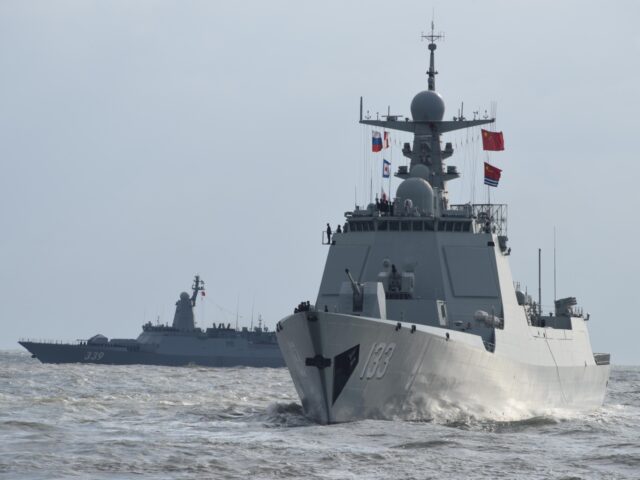Former British prime minister Liz Truss has warned that the rise of Communist China is a “threat” to the “free world”, and urged more military alliances and economic solidarity to contain it.
“The free world is in danger,” Truss told her audience — legislators from the relatively obscure Inter-Parliamentary Alliance on China — in the Japanese capital of Tokyo, in comments quoted by The Times.
“President Xi [Jinping] has been very clear — it’s his ambition for China to have control of Taiwan and in my view this would be disastrous,” she said of the Middle Kingdom’s hard-left despot.
“We must ensure that Taiwan is able to defend itself, and we must work together across the free world to do this… I would like to see a more developed Pacific defence alliance alongside even closer co-operation between NATO and our Pacific allies,” she continued, further suggesting that “the G7 plus its allies act as an economic NATO” to prevent China’s communist regime from using its economic might to cow other states.
“We could move to an economic Article 5, where the ‘one for all, all for one’ principle is wielded in defence of our values,” she suggested, in reference to Article 5 of the NATO theory which stipulates, in theory, that if one alliance member is attacked all the other members must come to its defence.
Some may be concerned that such a scheme could not only be used against the likes of China, however, but against country’s moving to protect local jobs against globalisation, or against countries with national conservative governments out of step with the Western liberal-left mainstream, like Hungary and Poland.
Truss’s confrontational approach to China contrasts sharply with that of her successor, incumbent Prime Minister Rishi Sunak.
Sunak, though explicitly rejected by the Conservative Party grassroots when he faced off with Truss for the party leadership and, by extension, premiership, was installed by political elites shortly afterwards, regardless.
During his failed leadership campaign, however, he had the dubious distinction of being the candidate effectively endorsed by the Chinese regime, with the state-run Global Times propaganda outlet praising him as “the one candidate with a pragmatic view of developing balanced ties with China”.
Despite making various tough-sounding statements about China before becoming Prime Minister, possibly an effort to shake the impression some had of him as a stooge for the communist state, talk of China being a “systemic threat” has been quickly walked back now that he is in power.
Various figures within the Conservative Party such as former leader David Cameron are accused of having developed business ties in China following their relatively low-paying political careers, potentially clouding their judgment on relations with Peking (Beijing).
Former Labour leader Tony Blair, too, is known to have made £237,000 for one speech in the Chinese industrial city of Dongguan shortly after leaving office — more than a Prime Minister’s salary for an entire year.

COMMENTS
Please let us know if you're having issues with commenting.